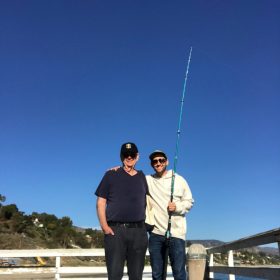What was your dissertation title and topic?
Hallucinations
What, if anything, about the UCLA department’s culture and approach to philosophy has influenced your intellectual approach?
Lively interaction between faculty and students was helpful.
How have your philosophical interests changed since you were at UCLA?
From my undergraduate days when I first discovered Philosophy, I was interested in the questions in more than an intellectual way. For example, I found parallels with Berkeley’s arguments in Eastern mystical thinking. I was searching and found ideas about the difference between subjectivity and objectivity and the mind-problem (or whatever words you use to describe these issues) as integral and relevant to my own psychological issues and growth. They were not light matters to me. As I have grown and matured over the 45 years or so since my graduate degree, I have never lost interest in these ideas, though I come at them from another direction. To this day I continue to think and write about these topics from an angle on the border between psychology and philosophy.
If your current career is outside of academia, have you found your philosophical training useful and if so, in what way?
I taught Philosophy for 4 or 5 years then went into a full time psychology practice. I have done a lot of writing in what I see as a borderline area between psychology and philosophy. My writing has been non-academic and does not appeal to the pros in either field. About 30 years ago I was introduced to the ideas of Carl Jung and was deeply influenced by them. They helped me bring my personal life and my intellectual life and my professional life as a psychologist into the same arena. I find myself straddling the different areas of life being too intellectual (logical?) for many of my friends and colleagues and too loose for the academics who are my friends. It is I think, an unusual and lonely perspective. I am known among some of my friends as “Socrates” in that I keep asking questions that others don’t ask. At the same time, my ideas are eccentric and peripheral.
If your current career is inside of academia, what’s your favorite course to teach right now? Do you have a recent publication you’d like to mention?
The Mountain Archetype: A Psychological Approach (iBook, self-published)
Mostly Trump: 76 Political Cartoons (iBook, self-published).


